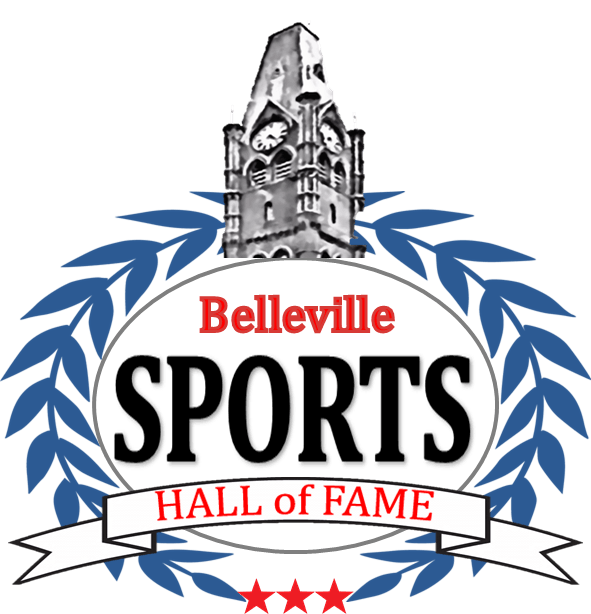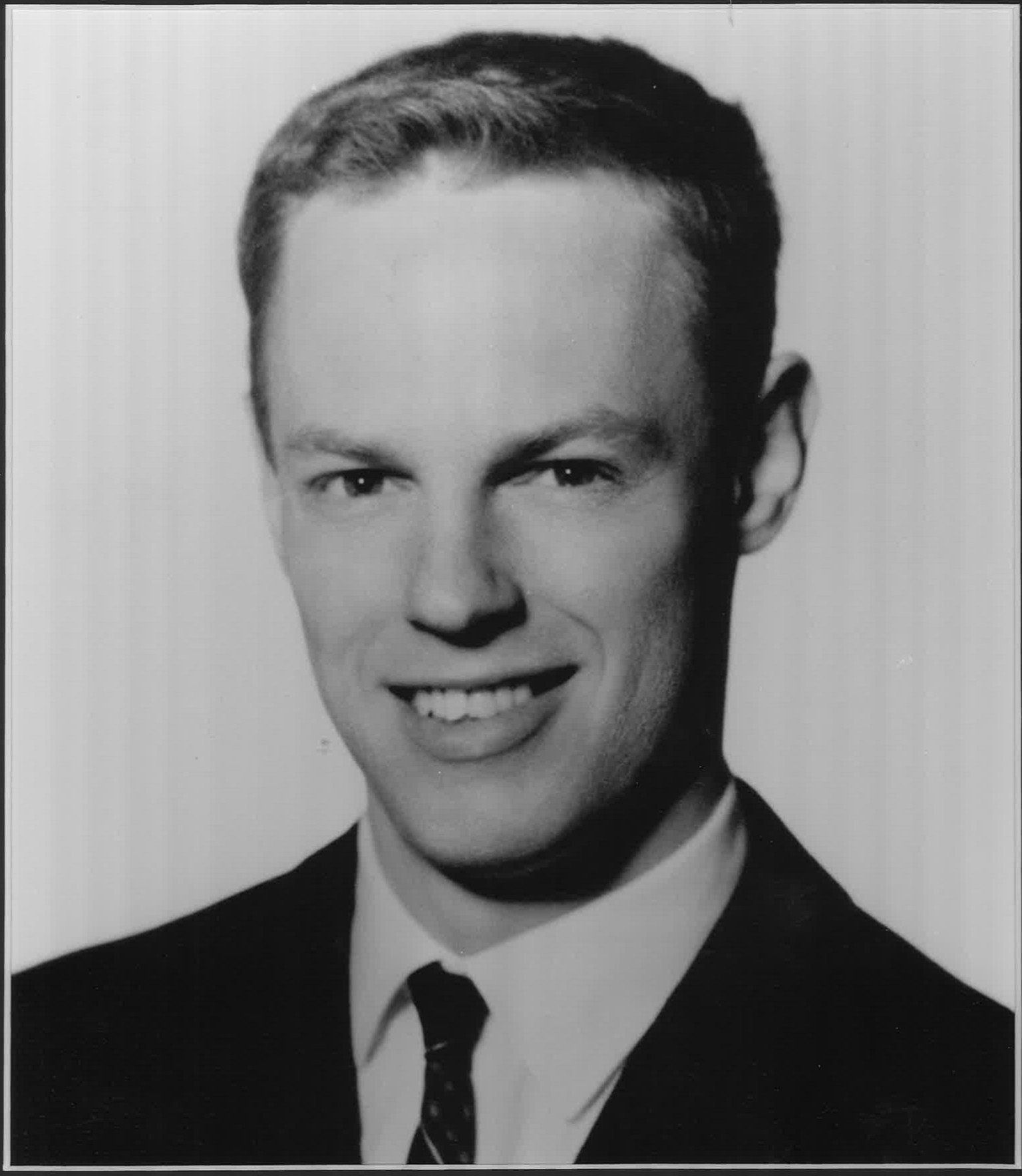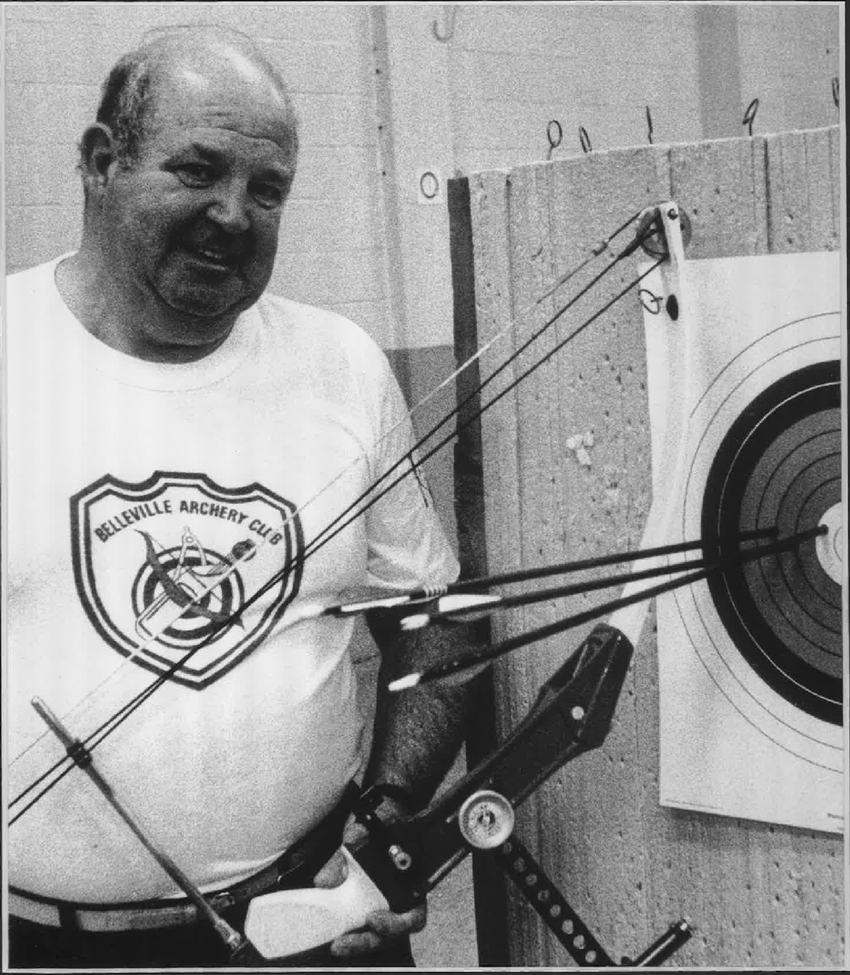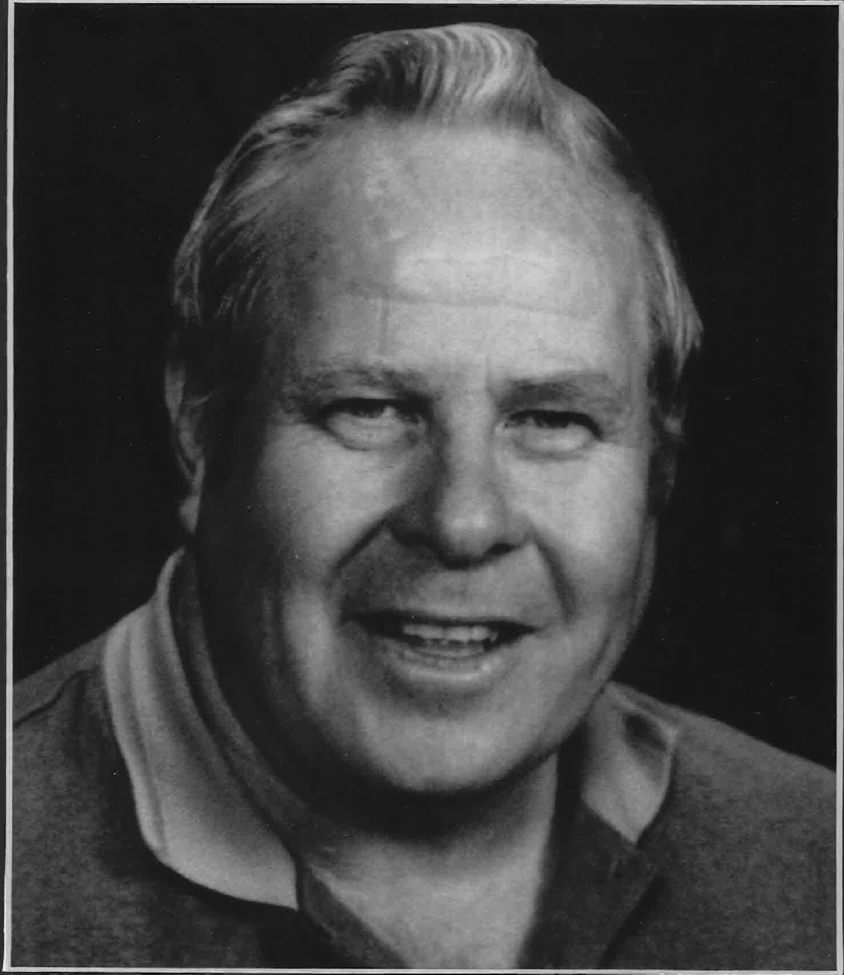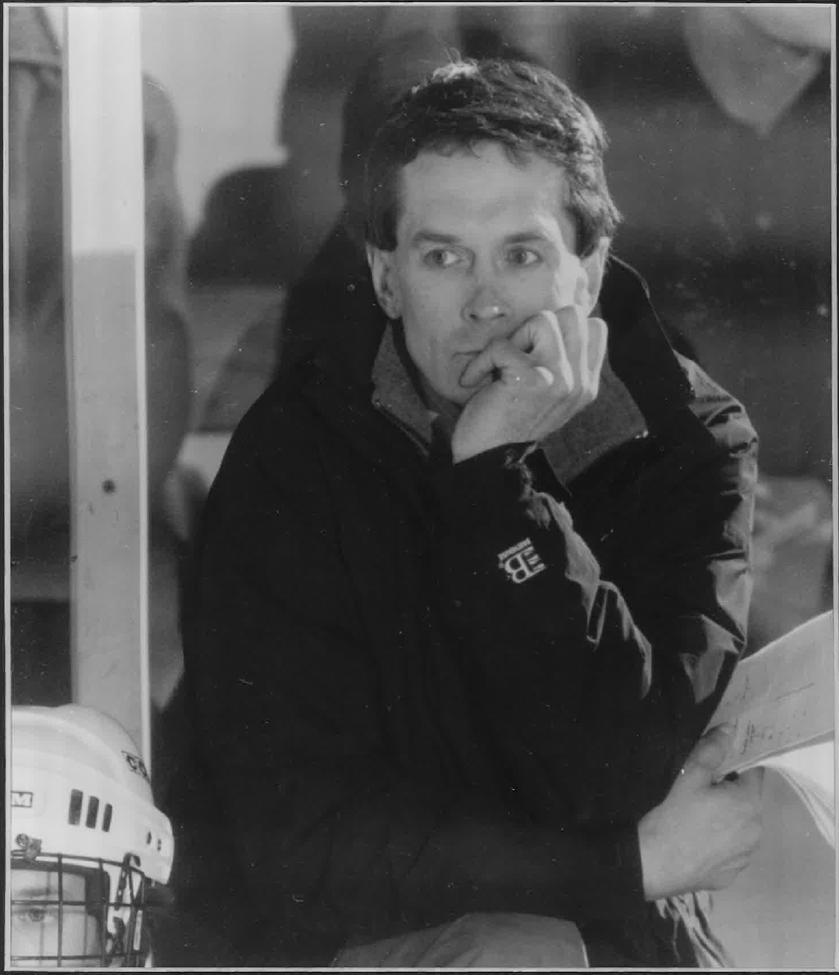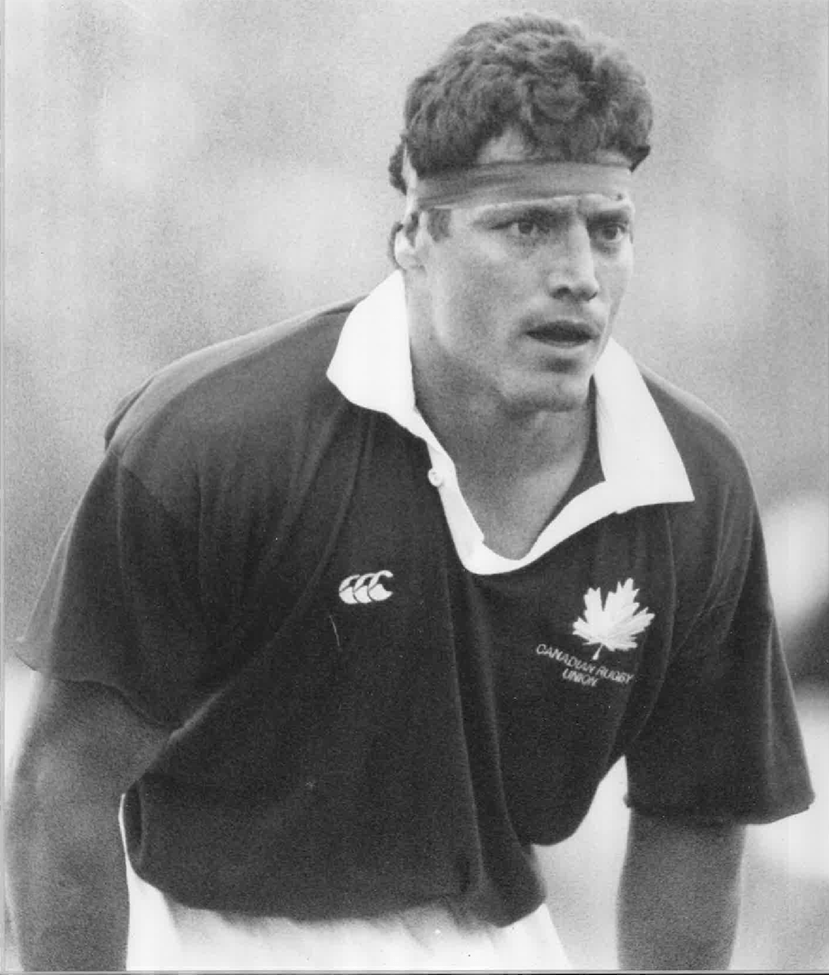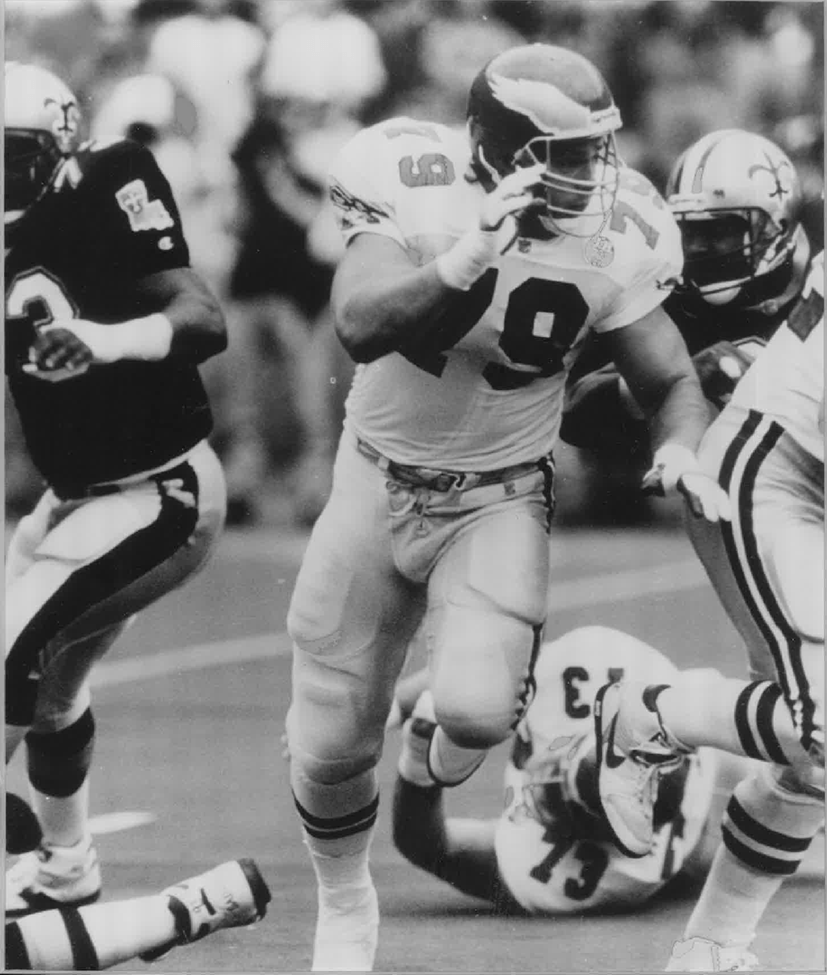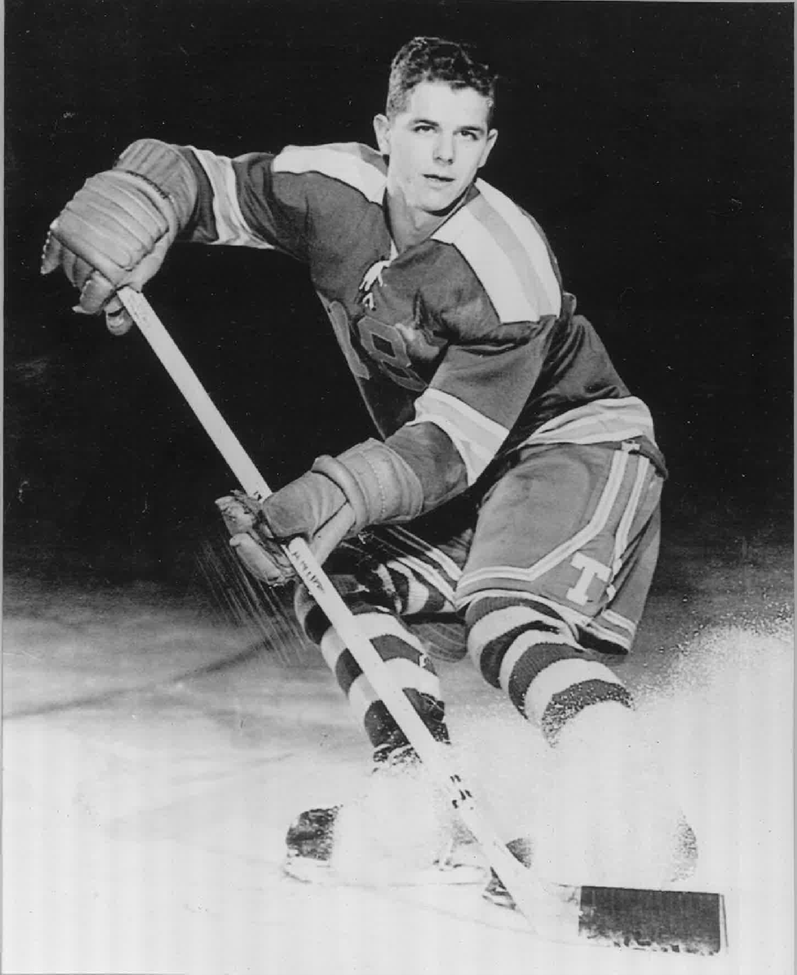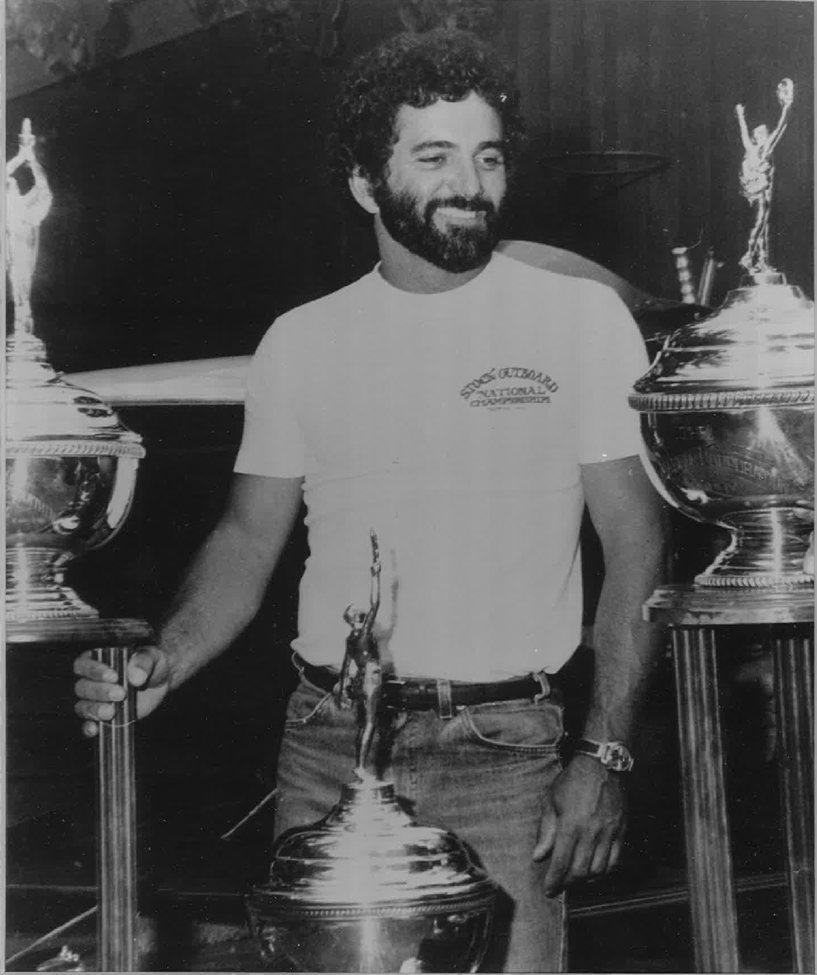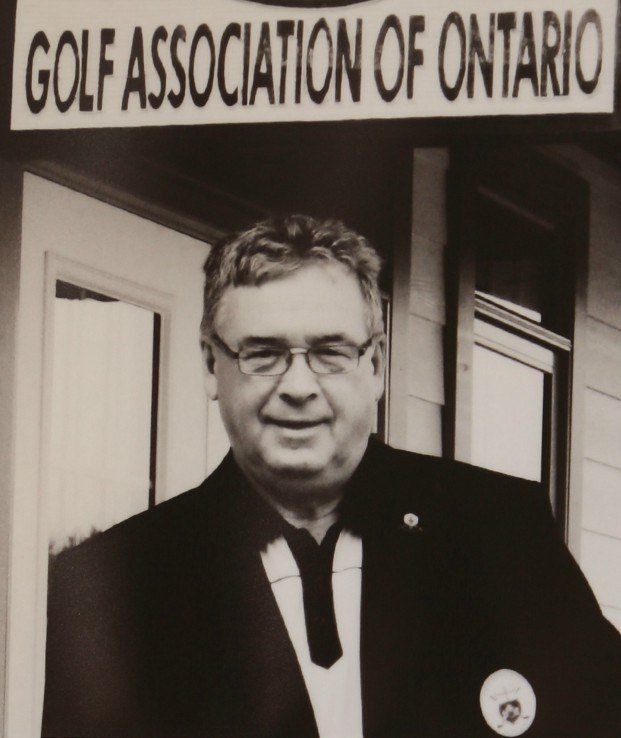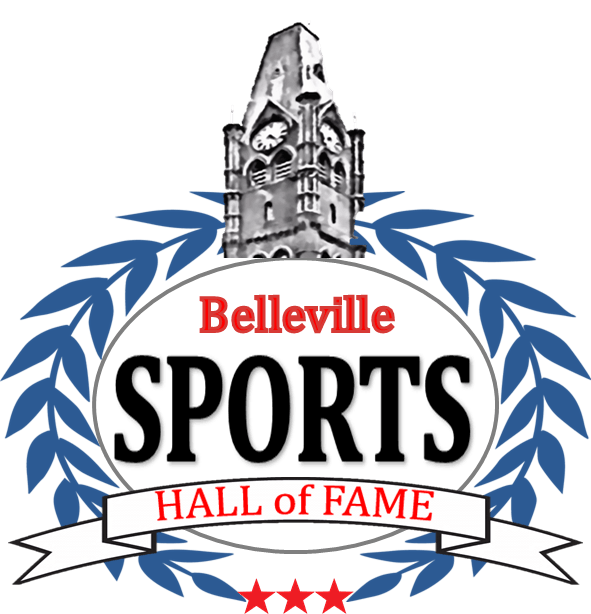Inductees: 2000-2009
Bruce Christopher – Inducted 2008
Bruce Christopher started playing pool in his hometown of Belleville at the age of seven, using a sawed-off golf club and a bag of marbles on his mother’s kitchen table. Several years later, the man they call “Superstroke” was challenging and defeating some of the best billiards players in the world including the legendary Minnesota Fats and Willie Mosconi. From his humble beginnings in Belleville, Christopher eventually made New York City his home base, and was soon travelling the globe as a billiards player, teacher and coach in a career that spanned more than 40 years. During that time, he entered the Guinness Book of World Records after sinking 5,688 balls consecutively over a 24-hour period, a feat that was filmed for ABC’s Wide World of Sports. Christopher was named Billiards Man of the Year in 1976 by Sports Illustrated magazine and won similar honours in the American Billiards Review. Two year earlier, he won the largest single purse ever handed out at that time $70,000 for winning a match in India. At one time, Christopher had his hands insured for $400,000. He participated in the 1978 Money Players Shootout in Las Vegas which was filmed for the CBS Sports Spectacular. He acted as a billiards advisor and consultant on various TV programs and films and for three years in a row, 1975 to 1977, was named the Entertainer of the Year by the American Billiards Review. Despite many of his competitive claims to fame, Christopher’s real strength may have been as an enthusiastic promoter of his game which included the publication of his own book, My Winning Secrets, featuring tips, lessons and advice for future pool stars. Minnesota Fats once said: Bruce Christopher has opened doors that pool players would never have gotten a chance to knock on before.
2008, athlete, individual, pool,
Dick Fitzpatrick
Dick Fitzpatrick – Inducted 2006
After accepting a hockey scholarship to Clarkson College in upstate New York in 1947, Dick Fitzpatrick decided to try out for the varsity baseball team. Of course, he made it. Nobody who knew or grew up with Fitzpatrick in Belleville would have been surprised. Many of those who watched him dominate football games as captain of the St. Michael’s Academy team that won back-to-back COSSA crowns in 1942 and ’43, believe Fitzpatrick to be one of the finest all-round athletes Belleville has ever produced.
Versatility was the name of the game for Fitzpatrick who starred in hockey, football, baseball, softball, basketball, tennis, track and field, and golf. Fitzpatrick was not only quick to learn the fundamentals of any game, but soon he was the best player on any team. Championships followed Fitzpatrick wherever he went. After leading the 1944 Belleville Bears to the Eastern Ontario Jr. B hockey title, Fitzpatrick quickly switched uniforms to lead the Belleville Kiwanis Club to the same regional banner in baseball that summer. An All-Ontario title followed with the Belleville Jr. A softball team in 1945 and later, in 1954, a provincial senior banner for the Belleville Batas.
At Clarkson, Fitzpatrick was a two-sport letterman and the first Canadian to play for the Golden Knights varsity baseball team in the university’s long and storied athletic history. In his freshman season with the hockey Knights, “Fitz” averaged two points per game to finish as top scorer with 32 points in 16 games. Later, he chased pucks for bucks in California, playing professionally in the old West Coast minor pro hockey league with the Hollywood Wolves.
Born in Detroit on February 17, 1926, Fitzpatrick died in Belleville on December 27, 1999. Once, when his sporting adventures were chronicled in The Intelligencer, a reporter declared Fitzpatrick’s “list of athletic laurels too long to catalogue here.” Fitzpatrick’s deserved standing in the city’s Sports Hall of Fame will attest to that fact. -
2006, athlete, individual, multi-sport,
Andy Rossit – Inducted 2006
Perhaps it was fitting for a fastball star. In 1982, while quarterbacking the University of Western Ontario Mustangs varsity football team, Belleville native Andy Rossit threw a gridiron version of the perfect game. Except in this case, it lasted an entire season. In 126 passing attempts, Rossit threw zero interceptions. More than 20 years later, the record still stands at UWO where Rossit finished fourth on the list of all-time Mustang passing leaders with 489 attempts and 238 completions for 4,505 yards and 23 touchdowns. Rossit guided the Mustangs to three consecutive Yates Cup titles as Ontario university champions in 1980-81-82. Rossit was the first quarterback in UWO football history to start in all five years of his eligibility. He spearheaded the team’s drive to a berth in the Vanier Cup national championship game in 1982 and was MVP of the Churchill Bowl semi-final match.
Rossit almost didn’t go to Western. He was first heavily recruited by Syracuse University and then head coach Tom Coughlin, who later rose to the ranks of the NFL. But football was far from Rossit’s only love when it came to sports. The Quinte Secondary School grad was equally adept on the fastball diamond where he represented Canada on three occasions, including at the Winfield Cup challenge series in New Zealand in 1993. In all, Rossit played in nine senior world championship tournaments, one North American senior championship and two Canadian finals. At the 1981 Ontario junior championships, Rossit was voted MVP after playing for the silver medal St. Catharines squad. Prior to that, he was an Eastern Ontario all-star in 1978. At Quinte, Rossit also excelled in basketball. He was chosen to play for the Eastern Ontario team at the 1978 Provincial Summer Games.
Born in Belleville on August 7, 1961, Rossit returned to town on the occasion of Quinte’s 50th anniversary in 2004 where he was declared the school’s Male Athlete of the Quarter Century. Rossit now resides in Stoney Creek. -
2006, athlete, individual,
Peter Stanley “Pete” Weston is considered by many to be the greatest athlete to ever come out of the old Belleville Collegiate Institute and Vocational School. Under legendary coach Homer “Red” Townsend, Weston was the unquestioned leader of many football and basketball teams at BCIVS. Later, he played hockey for Queen’s University in Kingston, and junior and senior softball in Belleville.
Unfortunately for local fans, Weston’s most memorable athletic accomplishments – in hockey and fastball – occurred away from his hometown. He played Sr. hockey for the Kingston Aces when they won an OHA championship and appeared in the Eastern Canadian finals n 1967. Two years later, with the Calgary Stampeders of the old Western Canada Sr. A loop, Weston helped the Stamps reach the Allan Cup finals. Weston played for several top notch fastball teams in Alberta including the Calgary Hectors (1968 provincial finalists) and Calgary Power Chiefs (national champions). When the Power Chiefs qualified for the Summer Games in Halifax, Weston helped lead the team to first place overall. He was selected to the All-Canadian team and was voted MVP.
Back on the ice, Weston led the Banff Bisons to an Alberta Intermediate hockey title in 1973. Weston’s travels, due to his job as an executive with Canada Cement, next took him to Manitoba where he played Sr. A hockey for the St. James Flyers and fastball for the Western Canadian champion Winnipeg Colonels. Moving east, Weston played for the Nova Scotia champion and Canadian championship runner-up Brookfield Elks fastball club.
Weston was born in Campbellford on July 31, 1943. BCI is now gone, torn down in 2004 to make way for an athletic playing field, but men like Pete Weston help keep the school’s memories alive. In Weston’s case, as perhaps the finest all-round athlete in the history of the school. -
2004, athlete, individual,
Tim Williams – Inducted 2008
Born in Lion’s Head, Ontario, on February 26th, 1919, Tim Williams was already enjoying an impressive string of athletic successes as a star hockey player in Owen Sound when he was recruited by Ken Soden to play for the Belleville Reliance Sr. B hockey team in 1941. As the story goes, Williams lacked a return train ticket to Owen Sound. So he stayed. And members of the sports community of Belleville among many, many others as glad he did. Considered to be one of the finest all-around athletes by his peers, Williams starred in the hockey and baseball for various teams after his two-year stint with Reliance. After a three year hitch in the Navy, where he played senior hockey, Williams returned to Belleville and joined Walk Gerow and Leo Goyer on the formidable forward line for the CNR Diesels. A star in the old Trent Valley League, Williams was player-coach on the Point Ann Cementmen in 1952 when they won an all-Ontario intermediate championship. After retiring as a player a few years later, Williams was asked to lend his considerable experience and hockey acumen to officiating which he did, wholeheartedly. For almost 20 years, Williams refereed Senior A, Junior B and intermediate hockey in Ontario. He later coached Belleville’s Junior B hockey club and then acted as supervisor of officials in eastern Ontario. On the baseball diamond, Williams starred for Reliance teams and later for the South Hastings League. Williams’ love of sport never waned and he continued to volunteer, well after his retirement, for several years as a minor hockey coach, manager and trainer. It is without a doubt that all of those individuals who befriended Williams during his playing days or who were mentored by him during his coaching days are glad he missed that train some 67 years ago.
Harold Thompson
Harold Thompson: Inducted 2008
It’s safe to say the sport of archery would probably not exist in Belleville if not for the yeoman efforts of Harold Thompson. Born in Montreal on Aug. 8, 1928, Thompson has been president of the Belleville Archery Club since 1969, adhering strictly to his motto: No child or adult shall be turned away. That means that over the span of 40 years, Thompson has introduced hundreds of children and adults to the sport of archery in Belleville. He has coached them, managed them and encouraged them, even supplied them with equipment.
As a competitor, Thompson had few peers. Over his 40-year career, he won more than 50 gold medals at various tournaments and competitions across Ontario. But as sterling as Thompson’s competitive archery career was, it may have been surpassed by his abilities as a coach – and a volunteer coach at that.
Thompson championed the sport of archery and was a driving force behind its inclusion in provincial sports programs for the physically challenged and has been a volunteer in that area since 1981. He is a past winner of the Ron Foster Award, presented in North York, for his long-time involvement with the Ontario Blind Sports Association, wheelchair and amputee athletes. Thompson has also won the Larry Coleman Memorial Award, presented in Cornwall in 1987, for dedication to the promotion and development of sport for physically disabled athletes. Thompson was named Belleville’s most outstanding minor sports volunteer in 1978, won the Ontario Archery Association’s Volunteer of the Year award in 1988 and was presented with a National Achievement Award in 1990 for distinguished service in the field of amateur sport. - 2008, archery, individual,
Paul Barrett – Inducted 2008
Paul Barrett has been a champion in the gym and in the boardroom. Born in Belleville on Oct. 15, 1949, Barrett joined the Apollo Barbell Club in his teens and soon became one of its very best Olympic-style weightlifters. He set a British Empire junior record for clean and press in 1967, hoisting 200.5 pounds at a bodyweight of only 148. He won a gold medal at the 1971 Canada Games, was a member of the Canadian weightlifting team for three years from 1974 to 1976 and represented his country at the Pan American Games in Mexico in 1975.
In a seven year span, from 1969-74, Barrett broke seven provincial records and medalled at four Canadian weightlifting championships. During his competitive career, he held provincial titles at both the junior and senior levels. In 1972, at a bodyweight of 164, he became the first local lifter to achieve double bodyweight, lifting 330 pounds in the clean and jerk.
At the administrative level, Barrett was equally successful. He held the presidency of the Canadian Weightlifting Federation from 2001 to 2008 and was a director of the Canadian Olympic Committee during that same period of time. He represented Canadian lifters at the Commonwealth Games from 1997 to 2008, and was weightlifting’s representative on Sports Officials Canada from 2003 to 2008.
As a competitor or official, Barrett has represented Canada at various world championship events in Australia, South Africa, Argentina, Turkey, the Dominican Republic, South America and Europe for more than 40 years. He is a recipient of the Ontario Centennial Medal of Excellence and a life member of the Ontario Weightlifting Association.
Reflecting on his seamless transition from champion weightlifter to respected weightlifting administrator, Barrett once said: “The reason I continue to be involved with sports is to give something back. If I can make the difference for even one athlete, it will all have been worthwhile.” - 2008, individual, weightlifting,
Ivan Nelson
Ivan Nelson – Inducted 2006
When Ivan Nelson said “it’s all about the kids,” he meant it. Born in Picton on June 6, 1943, the former athlete of the year at Prince Edward Collegiate made coaching children a priority in his life. A high school star in football, basketball, track and field, gymnastics, badminton and volleyball, Nelson later turned his attention to bowling. For more than 30 years, he taught children the finer points of the game, encouraged them and served as an administrator for their programs. From 1981 to 1997, Nelson coached several Ontario 10-pin youth teams at international and national championship tournaments, including the prestigious World Zone finals in Florida in 1992 and 1997. For a dozen years, from 1985-1997, Nelson was a fixture as head coach of the Southern Ontario team at the annual 10-pin youth championships held at various locations across Canada.
For 10 years, he served as president of the Ontario Junior 10-pin Bowling Alliance, responsible for more than 7,000 youth bowlers in the province. Nelson was instrumental in the formation of the popular Southern Ontario and provincial “family twosome” tournaments. During his busy coaching and administrative bowling career, the gregarious Nelson still found time to roll a few frames himself. When he did, the results were often spectacular.
Nelson bowled for more than 30 years, winning the city high average four times and scoring a perfect 300 game in 1996. He was the first Belleville bowler to post a 200 average (201) and still holds the city record for high series (783) in three games. Beginning in 1961 and continuing through 1986, Nelson refereed basketball and football at both the university and high school levels and helped form the Bay of Quinte referees association in 1965. Ivan Delbert Nelson died in 2002 at the age of 59. The popularity of bowling in Belleville and then continued success of Ontario youth programs at tournaments in Canada and the U.S. are tributes to Nelson’s dedication to a sport he loved and the children for whom he cared so much. - 2006, bowling, builder, individual,
Rick Locke
Rick Locke – Inducted 2006
“Mr. Quinte.” That was the title officially bestowed upon Rick Locke at the 50th anniversary celebrations at Quinte Secondary School in 2004. A more appropriate moniker would be difficult to find for the man who was an integral part of the Quinte Secondary School and Bay of Quinte sports scene for more than 40 years.
Born in Belleville on July 5, 1941, Locke was an all-around elementary school track and field champion in 1955. He won COSSA regional titles in 1958 and again in 1959 for the 100-yard dash, 220-yard dash, long jump and relay. Locke played baseball too and as a 19-year-old was a member of the 1960 provincial champion Belleville Senior Kenmors and the’ 61 all-Ontario silver medal squad.
Turning to the gridiron, Locke was a standout football player at McMaster University in Hamilton where he helped the team win three straight Ontario championships from 1962-64. With the Marauders, Locke played in the inaugural Atlantic Bowl championship contest and was a member of the first-ever Canadian university football team to play games on both coasts, plus challenge for the Yates Cup.
Returning to Belleville, Locke embarked on an illustrious coaching career that included an all-Ontario baseball title with the junior Tigers in 1978 and numerous Bay of Quinte and COSSA crowns in three sports – football, basketball and track – from 1965-97 at Quinte Secondary School. If that wasn’t already enough, Locke was also a full-time football referee at the Bay of Quinte and COSSA levels. Later, Locke helped out with the formation of the Belleville Minor Football league where he also officiated games.
Locke continues to call Belleville home where he still champions the cause of collegiate athletics through the McDonald’s Belleville High School Athletes of the Year program which recognizes excellence on the playing field and in the classroom. Locke truly is, “Mr. Quinte.” - 2006, builder, individual,
Greg Gavin – Inducted 2006
Greg Gavin saw a small school with big potential. Thirty years ago, Gavin assumed the mantle of athletic director at one of Ontario’s tiniest community colleges – Loyalist. Before the college even had proper gym facilities, Gavin envisioned great things for Loyalist and a strong bond between academics and athletes.
With a methodical approach, Gavin chose volleyball as the sport Loyalist would first embrace and soon his dedication and commitment paid off. Between 1986-2003 Gavin either coached, managed or recruited players for Loyalist Lancers men’s volleyball teams that won seven Ontario championships and brought home three medals from Canadian national finals. Gavin’s teams won three straight provincial titles from 1996-99 and two in a row from 2001-2003. Under Gavin’s guidance, the Loyalist College varsity athletic program grew to boast seven teams, one of the highest numbers for a “small” community college in Canada.
Always stressing athletics in conjunction with strong academics, four Lancers earned academic all-Canadian status in 2005-2006 and 27 garnered academic all-Ontario accolades. Loyalist College assistant athletic director Jim Buck said: “Greg Gavin took a small college with limited resources and built an athletic program that is known and respected, not only in Ontario, but right across Canada.
Born in Toronto on November 2, 1946 and now living outside Foxboro, Gavin was honoured in 2006 as a recipient of a lifetime achievement award at Loyalist. Greg Gavin dared to dream big. And Loyalist College is thankful he did. - 2006, builder, individual,
Barry Pyear – Inducted 2004
Barry Pyear chose helping others over personal glory. Hundreds of his former Bay of Quinte high school football players are glad he did. In 1971, after four superb seasons as standout defensive back and kick returner at the University of Guelph, Pyear was offered a professional tryout by the Montreal Alouettes of the Canadian Football League. Instead of turning pro, Pyear opted instead to begin his teaching and coaching career in the Bay of Quinte region.
Thirty years later, after stints at Centre Hastings, Centennial, Moira and Bayside, Pyear had guided his football teams to more than 200 victories, six COSSA championships and the first-ever appearance by a Bay of Quinte team at the National Capital Bowl in the Sky Dome in Toronto. Several of Pyear’s players have gone on to attend university in Ontario. At the time of his induction into the Belleville Sports Hall of Fame, at least 10 of his former players were starting for Ontario university football teams and two were playing professionally.
While building championship teams became Pyear’s forte, he was also instrumental in reviving the dormant football program at Bayside after an 18-year hiatus. H was also among the founders of the wildly successful Belleville Minor Football League, providing local children with the opportunity to learn and play football before high school.
Born in Stirling on June 29, 1949, Pyear excelled on the football field and on the ice. He was a starter on both offence and defence for the Stirling Rawdon District High School team that won a COSSA football title in 1966. The next year he was a key member of the Tweed Jr. C hockey team that captured an all-Ontario championship. Pyear chose football over hockey after being offered a full hockey scholarship to Rensselaer Polytechnic Institute in Troy, N.Y. He elected to go to Guelph where he studied physical and health education while playing football for the Gryphons. The Gryphons coaching staff, in fact, was so intent on getting Pyear to Guelph that they assigned former CFL great Garney Henley to personally recruit him. Not surprisingly, Pyear’s three sons – Kyle, Ryan and Tobin – followed his footsteps into football, carving successful university careers of their own. - 2004, builder, football, individual,
Bill Conley – Inducted 2004
Born in Belleville on May 4, 1944, Bill Conley first strapped on skates at the age of two. By the time he was four -one year after losing his hearing due to red measles – Conley was already playing shinny with neighbourhood boys twice his age. Conley attended the Ontario School for the Deaf (now knows as the Sir James Whitney School for the Deaf) from 1950 – 1964, where he played hockey as well as football, volleyball, basketball and badminton, He excelled at all of them. Conley was a member of the first-ever OSD team to win a Bay of Quinte basketball championship, defeating Madoc for the “B” title in 1961. He also played for the OSD senior volleyball team that won a Bay of Quinte banner two years later, earning MVP honours.
Upon graduation from OSD, Conley travelled to Washington, D.C. to attend Gallaudet University where his love for hockey inspired him to found the first-ever varsity men’s hockey team at the school. With Conley as captain, doing double duty at left wing and defence, the Bisons captured the championship of the highly competitive Chesapeake Hockey League in 1969, competing against other university and Sr. A teams. Bisons were finalists again in 1970. Leaving Gallaudet, Conley turned his talents to coaching. He was named head coach of the Eastern Canadian deaf basketball team in 1972 and a year later guided the Canadian volleyball team at the 1973 World Deaf Games in Sweden.
Conley continued to play volleyball and basketball in the Ontario Deaf Sports Association for the Kingston Athletic Association of the Deaf, collecting three championships between 1970 and ’73. He won provincial MVP honours in 1970-71, leading KAAD to consecutive ODSA basketball titles. Conley’s excellence as a player and coach were officially recognized by the ODSA in 1998 when he was named among the inaugural inductees into the association’s Hall of Fame.
2010, athlete, hockey, individual,
Cliff Belch – Inducted 2004
A bad leg kept Cliff Belch off the ball diamond but not out of the boardroom. For more than 30 years Belch was a faithful servant to minor softball in Ontario, acting in several capacities on the Ontario Amateur Softball Association board of executives – provincially and locally. Belch began attending OASA meetings in 1963 and was appointed to the executive committee in 1964. He was elected in 1966. Two years later, Belch was named secretary of the OASA. In 1973 he was elected treasurer, a position he held until 1975. The following year Belch was elected president. In 1988 he received an OASSA life Membership for his meritorious service to the provincial association. In 1977 Belch carried the historic 75th annual meeting of the OASA in Kingston. The highlight of Belch’s OASA career occurred two years later when he received the prestigious F.A. Feaver “Mr. Softball Award” and the Ontario Volunteer Service Award for his 30-plus years in minor ball. Locally, Belch was at various times an umpire, convenor and coach in several area leagues from the 1960’s to the 80’s. He was secretary Treasurer and commissioner of the Belleville Ladies Softball League. Belch’s desire to serve minor sports was a natural. He was assistant director of recreation for the City of Belleville from 1969 to 1972, then deputy until 1974 when he took over the director of recreation. Belch held the position until 1987 when he rose to Chief Administration Officer. He retired in 1966 and later served six years on city council. Nick named “Sonny,” Belch was born in Belleville on October 7, 1933 and educated at Prince of Wales Elementary School and the former Belleville Collegiate Institute. He prepared for his life in sport and recreation by later studying recreation leadership at Centennial College in Toronto.
2004, builder, individual, softball,
Bob Walt follows a family tradition. With his induction into the Belleville Sports Hall of Fame in 2003, he becomes the third member of the city’s illustrious ‘First Family of Weightlifting’ to enter the town’s athletic shrine. Walt’s older brothers, Art and Gary, were inducted in 1992. But Bob Walt had to wait until he was 50 to become eligible to enter the hall. That is because he was still competing in his beloved sport of Olympic style weightlifting as an accomplished Masters athlete long after his brothers and most of his rivals had retired from the game. In fact, Walt has often said he is not getting older, just better. His Masters accomplishments would seem to confirm that belief. He is a 10-time Canadian Masters champion and current national record-holder.
Walt was inducted into the Canadian Masters Hall of Fame in 2001. He was World Masters champion in 2000 and is a three-time Pan American Masters champ: in 1999, 2001 and 2002. Walt entered the New Millennium in his fifth decade as a member of Belleville’s Apollo Barbell Club, one of the most respected weightlifting outfits in Canada.
While Walt’s achievements as a Masters lifter are indeed impressive, the seeds for success were clearly sown in his early years with the Apollo Club. Born in Belleville on August 27, 1949, Walt followed his brothers into the Apollo fold where they dominated the local weightlifting scene, competing against each other in the gym and blowing away the competition at weekend contests around the province and, later, the nation.
Walt first tasted success in the iron game in 1966 when he was Canadian teenage champion for his weight class. He added a second teen title in 1969. Walt was a Canadian champion in 1968, Canadian intermediate champion a year later and a British Commonwealth record-holder for two years, from 1967 to 1968. Other titles included an Ontario senior crown in 1966, Best Lifter title at the 1968 provincial championships and the 1969 Ontario Junior belt. At the Canada Games in 1971, Walt won a bronze medal. Two years later, he qualified for the World Championships and was Canadian runner-up in 1976 and 1978.
Walt’s achievements cannot, however, be measured by medals alone. His dedication to the sport includes not only his continued active involvement, but the very fact he provided the once nomadic Apollo Club with a permanent home – in his garage. Walt is proof that age is just a number. It need not be a factor in achieving athletic success.
2003, athlete, individual, weightlifting,
Terry Allan Meagher – Inducted 2003
Terry Meagher was a pioneer. Starring as a forward for the Belleville Junior B’s in the early 1970’s, Meagher’s stellar play and excellent leadership skills attracted the attention of U.S. college hockey recruiters. In 1973, Meagher accepted a hockey scholarship to Boston University, opening the door for other local shinny stars who later followed his path south. In fact, two of Meagher’s brothers – Rick and Tony – were later signed by Boston University.
With the Terriers, Meagher scored 74 goals and added 68 assists for 142 points in 92 career games. In his senior year, Meagher was team captain, team scoring champion with 30 goals and 55 points, Eastern Collegiate Athletic Association MVP and winner of the Boston University distinguished scholar-athlete award.
After completing a Master’s Degree at Illinois State University in 1977, Meagher soon turned his attention to coaching. The results were spectacular. Twenty years after accepting a position as head hockey coach at Bowdoin College in Brunswick, Ma. in 1983, Meagher was among the 40 most winning coaches in NCAA history. During the 2002-2003 season, he surpassed Sid “Century” Smith as winningest coach at Bowdoin with his 327th victory. Meagher’s overall record with the Polar Bears was 327-156-11. On four occasions, Meagher has been voted New England college hockey’s Coach of the Year. He steered Bowdoin to three ECAC championships – the first in 1986 and consecutive titles in 1993 and1994. Fourteen of Meagher’s players have been All-Americans. One of them was a Hobey Baker Award finalist as most outstanding college hockey player in the United States.
Born in Belleville on June 30. 1952, Meagher excelled at all sports during his school years, particularly his high school days at Quinte Secondary. During the summer months, his poise and perfection on ball diamonds around the city and around the province were second to none. But hockey opened the door of opportunity and Meagher strode boldly over the threshold. His players are glad he did. Meagher’s nomination form submitted to the Belleville Sports Hall of Fame selection committee by his sister, Joan, was heartily endorsed by all members of his 2002-2003 Bowdoin College Polar Bears hockey team. - 2003, athlete, hockey, individual,
Tom Gavey – Inducted 2003
Late in his almost 30-year career as a jack-of-all-trades reporter at The Intelligencer, Tom Gavey was voted Belleville’s Most Popular Columnist. It was a well-deserved accolade. Gavey wrote a TV column and rated movies too, but, it was as a sports reporter and columnist that he was most beloved by his myriad readers. Gavey’s weekend sports columns combined the very best of an outstanding writing ability, keen insights, tremendous knowledge of his topic, a razor-sharp wit and a folksy style that appealed to all readers.
Gavey’s first love was softball and he enjoyed covering the various local leagues and following the Belleville McDonald’s when they played in the Ontario Fastball League in the 19701s. But, it was as a hockey writer that Gavey may have made his most indelible imprint on the city’s sports scene. When the Jim’s Pizza juveniles won an All-Ontario championship in 1976, Gavey wrote colourful stories detailing their success.
He graduated to junior hockey and covered the Belleville Bulls for the first 20 years of their existence in the Ontario Hockey League, Gavey’s famous mid-season Bulls report cards were greatly anticipated – and sometimes dreaded – by coaches, players and fans. Away from his desk at The Intelligencer – always piled high with sports magazines and team media guides from the OHL, NHL and Major League Baseball – Gavey demonstrated his versatility by handling the colour commentary on Bulls radio broadcasts. Again, Gavey was with the Bulls on the air from their beginning.
Away from his job writing and talking about sports, Gavey plunged his energies into charity work. He spent 10 years on the executive committee of the Medigas Rick Meagher golf tournament, helping to raise thousands of dollars for the purchase of playground equipment for physically challenged children in Belleville. Suffering from a kidney ailment, Gavey championed various fund raising efforts to assist the local dialysis unit.
Gavey spent time as a minor hockey convener, men’s softball and broomball coach, and working Friday nights at the Quinte Exhibition Raceway. He also served on the Belleville Sports Hall of Fame committee. Educated at Nicholson Catholic College, Gavey attended Ryerson University in Toronto where he studied journalism. He received the Toronto Sun Award for excellence in 1981. Later in his career, in recognition of his valuable contribution to the community, Gavey received a Governor General’s Award Canada 125 medallion. Gavey shunned the limelight, often declaring that being able to live his boyhood dream of covering sports for his hometown newspaper made him the happiest man alive.
In 2002, at the age of 45, Gavey succumbed to kidney disease. That winter, the Bulls honoured his memory by wearing a “TG” patch on their jerseys. Tom would have been tickled. - 2003, builder, individual, writer,
Robert “Shud” Ethier – Inducted 2003
“The best lefthander this city has ever produced.” That is how the late Intelligencer sports writer Tom Gavey described Shud Ethier at the height of his fastball career. In fact, Ethier was not only considered the best lefty to ever come out of Belleville fastball, he was also believed to be one of the best ever produced in Canada. Few who played against Ethier would disagree.
When fastball was the city’s most popular summer sport, enjoying a particularly heady heyday in the 1970s, Ethier was king. Many local fastball fans need only recall the legendary marathon at Alemite Park in 1975 pitting Ethier and his Belleville McDonald’s teammates against St. Catharines in an Ontario Fastball League encounter. Few who witnessed it will ever forget it. Pitching against world-class hurler Dick Balint of St. Catharines, Ethier worked 27 innings in a heartbreaking loss. That 1975 classic was symbolic of Ethier’s fastball career. He was a workhorse on the mound and mowed down opposition pitchers with incredible regularity. Examples abound.
In 1963, while working the hill for the Ellis Juniors, Ethier struck out 51 batters over 22 innings in consecutive playoff games. He posted record numbers in the Eastern Ontario Fastball League, firing the first-ever perfect game in the circuit’s history – one of three in Ethier’s EOFL tenure – and tossed a total of 11 no-hitters. In 1979, Ethier registered an 18-and-2 record in the EOFL with a 0.77 ERA. He was voted Most Outstanding Pitcher and league MVP. Even as a child, Ethier demonstrated dominance in his sport of choice. He was a member of the city’s first-ever All-Ontario peewee championship team and later helped Howard and Robert Printing take a provincial intermediate “B” title.
Like many of his Hall of Fame comrades, Ethier’s various league championship and MVP awards are almost too numerous to mention. Later in his fastball career, Ethier turned to officiating and was as proficient calling the shots as he was delivering them. He won the Colling Memorial Award for his outstanding job as an umpire. Ethier died in 2001 at the age of 55. - athlete, baseball, individual,
Marc Crawford – Inducted 2002
As a child, Marc Crawford used to sneak into rinks to watch hockey games. As an adult, Marc Crawford got the best seat in the house. And he still didn’t have to pay to get in. After a junior career that featured a 99-point season in Cornwall in 1981 and a professional career that featured an appearance in the Stanley Cup finals with Vancouver in 1982, Crawford turned his talents to coaching. In 1996 he guided the Colorado Avalanche to a Stanley Cup championship.
Born in Belleville on February 13, 1961, Crawford – like his brothers – followed the footsteps of his father, Floyd (captain of the 1959 World Champion Belleville McFarlands) and was soon skating on local ponds, the Bay of Quinte and at Memorial Arena with a hockey stick in his hands. After working his way through the minor hockey ranks in Belleville, Crawford joined the Quebec Junior league’s Cornwall Royals in 1978. He played three solid seasons there, was named team captain and scored a career-high 42 goals in his final junior campaign. In Cornwall, Crawford quickly proved he was a winner. He helped the Royals win back-to-back Memorial Cups in 1980 and ’81. He was voted to the Memorial Cup All-Star Team in 1981 after leading the Quebec league with 20 goals in 19 playoff games that spring. He played for Team Canada at the 1980 and ’81 World Junior Championships.
Crawford signed with the NHL Vancouver Canucks and played 176 career games from 1981 to 1987, scoring 19 goals and adding 31 assists for 50 points with 229 penalty minutes in a mostly grinder role. In the spring of 1982, Crawford – a left wing – saw regular duty for the Canucks in the Stanley Cup final which they lost to the powerhouse New York Islanders. Local fans will recall Crawford battling for loose pucks in the corner with hulking Islander winger Clark Gillies and refusing to give an inch to the much larger Hockey Hall of Famer. During his original stint in the Canucks organization, Crawford played several seasons in the minors where he first demonstrated his aptitude for coaching. With the Fredericton (N.11) Express in the American League, he was promoted to player – assistant coach and would soon focus all his hockey energies in that direction.
Crawford hung up his skates in 1989 and returned to Cornwall where he coached the Royals until 1991. From there, it was off to St. John’s, Newfoundland as bench boss of the Toronto Maple Leafs’ AHL farm club. He broke into the NHL coaching ranks in 1994 with the Quebec Nordiques and stayed with them when they moved to Denver to become the Avalanche the following year. Crawford was named winner of the Jack Adams award as top coach in the NHL in 1995 and won the Stanley Cup the following season. He coached Canada at the Winter Olympics in Nagano, Japan in 1998. Crawford’s professional career came full circle when he later become head coach of his former NHL team, the Vancouver Canucks. Today, he is considered one of the brightest and most innovative coaches in hockey. - 2002, athlete, hockey, individual,
Regyna Armonas – Inducted 2002
Regyna Armonas not only played with the boys, she beat them at their own game. When the outstanding Belleville athlete enrolled at Loyalist College in 1981, the Lancers did not offer varsity girls volleyball. So, Armonas played on the men’s team. She became the only woman to ever play varsity men’s volleyball in the Ontario Colleges Athletic Association and at the time was considered one of the best players in the league. Male teammates and rival players should not have been surprised. After all, Armonas was a former Olympian. While excelling at several sports during her high school days at Quinte Secondary, Armonas’ speciality was volleyball. She was a member of the Canadian National women’s volleyball program from 1974 to 1976 in British Columbia. Armonas reached the pinnacle of her volleyball career in 1976, competing at the Olympic Summer Games in Montreal where she was considered a defensive and serving specialist for Canada. Armonas’ athletic career began at an early age.
Born in Belleville on September 8, 1955, Armonas attended Harmony Public School where she was named Athlete of the Year in 1986. At Quinte, where she led Saints girls teams in badminton, basketball, volleyball, gymnastics and track and field, she won Athlete of the Year honours an astounding five consecutive times. She also competed for the Quinte Legion Track Club and the Belleville Badminton Club winning various provincial, regional and club accolades.
At Loyalist, Armonas’ incredible athletic prowess was matched by her stellar work in the classroom. She won the prestigious Ed Logan Trophy as the Loyalist student who best combines academics and athletic excellence. After starring for the men’s team at Loyalist, Armonas became the linchpin on the first-ever Lady Lancers varsity volleyball squad, helping them qualify for the OCAA championship tournament after placing first in their division in the regular season. Armonas also found time to play mixed doubles badminton at Loyalist where she and her partner advanced to the provincial finals. When Armonas wasn’t competing for the Lancers, she offered her services as an expert assistant coach.
Armonas’ achievements at Loyalist and Quinte will not soon be forgotten. In fact, she was singled out for special recognition when she was named the female Athlete of the Quarter Century at both schools. She was also a unanimous choice as one of the inaugural inductees into the Lancers Sports Hall of Fame in 2001-2002. After leaving Belleville in 1983, Armonas joined the Ontario Provincial Police and was assigned to the Renfrew detachment. Said Loyalist athletic director Greg Gavin: “Regyna’s talent, skill and willingness to help others improve will long be remembered by those who watched her play.” -
athlete, individual,
Mike Schad – Inducted 2001
Soccer’s loss was football’s gain. At 6 foot 5 and more than 300 pounds at the peak of his professional football playing career, it is difficult to believe Belleville native, Mike Schad ever played soccer. Yet, before picking up the gridiron game upon entering Moira Secondary School in 1977, soccer was indeed Schad’s game of choice. By the time Schad graduated from Moira in 1982, however, he was well on his way to football fame, and, fortune. After a stellar college career at Queen’s University in Kingston where he was named All-Canadian and Most Outstanding Lineman in the nation, Schad was selected 23rd overall in the first round of the 1986 National Football League draft by the Los Angeles (now St. Louis) Rams. To this day. Schad remains the only Canadian-born, Canadian-trained football player to ever be chosen in the first round of the NFL draft. After three years with the Rams, Schad signed with the Philadelphia Eagles as a free agent. In the City of Brotherly Love, Schad blossomed, playing six solid seasons at left guard for the Eagles. The apex of his career was reached in 1993 when Sports Illustrated magazine named Schad to their prestigious All-Pro Team. Unfortunately, injuries exacted a heavy price and after bouts with various aches and pains, Schad was released in 1994 and promptly signed with the Cleveland Browns. Pencilled in as a starter on Cleveland’s offensive line, Schad blew a biceps muscle in training camp and his NFL career was over. However, Schad bounced back yet again. He returned to Canada and mended his arm in time to play 10 games for the now defunct Ottawa Rough Riders, who had selected him in the first round of the Canadian Football League draft, also in 1986. In 1996, Schad hung up his prodigious pads and joined the Riders as an Assistant Coach. The following year he joined the Temple University Owls in Philadelphia as offensive line coach. Today, Schad coaches with the same competitive drive he displayed on the football field. “Things don’t happen by accident,” he says. “They happen by a person going out there and making them happen.” - 2001, athlete, football, individual,
Gordon Smith – Inducted 2001
A rival high school football coach once joked that if Gord Smith happened upon a traffic jam in downtown Belleville, he would pull out his whistle and get things moving again. And why not? Gordon Aubrey Smith is one of the most highly regarded referees in Canadian university football history. For four decades – from the 1960s to the ’90s – Smith was a familiar face at Canadian university football games, whistle clenched between his teeth, eyes peeled for infractions. On five occasions Smith was selected to officiate the Canadian university finals – the Vanier Cup. And while travelling to university venues occupied most of his autumn weekends, Smith was equally successful as an educator, coach and referee in the Quinte area. A high school teaching career that began in Stirling in 1963, concluded 32 years later with Smith having coached various Bay of Quinte basketball and football teams to regional championships more than 20 times mostly at Moira and Centennial Secondary School. Smith refereed high school basketball for 41 years, including four OFSAA (Ontario Federation Secondary School Athletic Association) championship tournaments, and sat on the Canadian Amateur Football Association (CAFA) rules committee for 25 years. Smith’s excellence in the classroom and on the playing field was recognized by his peers in the provincial teaching fraternity in 1996 when he received the Pete Beach Award. When OFSAA officials presented Smith with the coveted Beach Award, the accompanying citation encapsulated the indelible impression Smith has left on the Quinte area: “It is a rare educator who has the capacity to utilize the medium of school sport in such a way as to positively and sufficiently influence students in the remainder of their lives. That educator is one who consistently provides an impression of stability and optimism; one who enjoys the company and the respect of young people; one who embodies and inoculates by example the highest traditions of the sportsperson; one who best typifies the true function of the teacher-coach – a source of discipline, a mentor and a friend.” Gord Smith was that rare educator. - 2001, builder, football, individual,
Wayne “Weiner” Brown – Inducted 2001If all Wayne (Weiner) Brown had done in Belleville was contribute mightily to an Allan Cup win in 1958 and a World Championship in 1959 with the Belleville McFarlands he would be legendary in city sports history. But the diminutive one contributed much more than that. He excelled at any sport he put his hand to, but particularly at hockey and softball. Brown is also remembered as one of the top umpires to ever officiate softball games in the Quinte region. Born in Deloro, Ontario, he was lured to Belleville by General Manager, Drury Denyes to help form the powerhouse McFarlands team that won a National Senior “A” Championship and then travelled to Prague, Czech. to capture a World Championship. During the 1957-58 regular season with the Macs, Brown scored 26 goals and totalled 50 points. Brown made it to the National Hockey League in 1954, playing in the playoffs with the Boston Bruins. Only a serious leg injury prevented him from enjoying a longer NHL career. During the 1953-54 season with the Seattle Bombers of the Western Hockey League, Brown scored an amazing 49 goals in 70 games. He also played minor professional hockey in Tacoma, Victoria, Clinton and Syracuse. Brown wrapped up his playing days back in Belleville with the Mohawks and Quintes. He played Junior “A” hockey in St. Catharines Ontario final series. In his late 40s and early 50s he was a fine player in the newly minted Belleville Slo-Pitch League. He was also named Umpire of the Year by the Belleville and District Softball League and officiated softball games for more than two decades. In later years Brown has turned his hand to golf and he won a senior title at the Bay of Quinte Golf and Country Club. Married to Irene, their children include Wayne Jr., Rick, Brian, Lynne Ann and Jeff. - 2001, athlete, hockey, individual,
Tom Boulter – Inducted 2001
Tom Boulter made it three generations of Boulters involved in boat racing in 1962 when, at just 12, he took up the sport. Boulter was born in Belleville. He would prove to be the family’s most proficient racer over 32 years, as a member of the Canadian Boating Federation and the American Power Boat Association. At age 13, Boulter was the youngest driver to ever compete and finish the gruelling 100 mile marathon held on the St. Lawrence River. During his racing days, he competed in “A” Stock, Hydro “B”, “C” Hydro and “D” Hydro, winning races in all classes using Mercury engines from 10 to 40 HP. He set a five mile competition record in “B” Hydro at St. Timothy, Quebec in 1976, followed by a one kilometre speed record in Dain City, Ontario, in 1978 in the same class. Boulter won the Canadian High Point Championship four years, 1976 to 1978 and again in 1980. In 1977 and 1978, he was high point champion in New York State in “B” Hydro. In September 1983, at Peterborough, he won three of six Canadian championships available. Boulter was presented with the prestigious Jack Abel Memorial trophy in 1980 for his outstanding contribution to the Canadian Boating Federation. He moved to racing inboard hydroplanes in the mid 1980’s with his brother, Todd, in their boat “Smooth Move.” In 1988, the duo combined to gain the Canadian High Point Championship in the Six Litre Hydro Cuss. Taking turns driving the boat in September 1989, they won the Six Litre Races at the Gold Cup Races in Picton. One day they were presented with the John Porter Trophy and the next with the Parkhurst Transportation Trophy. Over 32 years Tom Boulter garnered more than 150 trophies and awards. - 2001, athlete, boat racing, individual,
Karl Svoboda – Inducted 2000
Karl Svoboda “caps” an unparalleled career in Canadian rugby with his induction into the Belleville Sports Hall of Fame. When Svoboda retired from active play he was the most capped hooker in the history of the Canadian National Rugby Team, with 24. (A “cap” is symbolically awarded to a rugby player who represents his country in international play). Born in Belleville March 23, 1962, he began his rugby career in 1978 with the Belleville Bulldogs RFC and at Centennial Secondary School. As a 17-year-old he was named to Mid-Ontario senior and junior representative sides and in 1980 he was a member of the Ontario Junior Squad that was the first Canadian team to win the prestigious Preston Grasshoppers Tournament in England. Svoboda was a member of the Ontario Senior Rugby Team between 1983 and 1995, several times captaining the team. He captained the University of Toronto Varsity Blues (1981-82) and was a member of the Canadian National Team (1984-1995). He earned the right to play in the first three World Cup of Rugby global championships in Australia and New Zealand (1987), France and Britain (1991) and South Africa (1995). Svoboda captained Canada to its first, and to date only, win over England in 1993. A rarity for a Canadian, he was offered professional playing contracts by English Rugby Union teams in Bedford and Northampton following the 1991 World Cup. In 1995 Svoboda accepted an international rugby scholarship to historic Oxford University. While on tour of Eastern Europe with an international touring side called the Penguins, Svoboda was inducted into the Czechoslovakian Rugby Union Hall of Fame in Prague. (His father, John, was born and raised in the Czech Republic before coming to Canada). In 1995 Svoboda retired from both the Canadian and Ontario sides but remains active in the sport as a coach. Now living in Whitby, he’s married to Kendra. A teacher, he earned a Master’s degree in business from Oxford. Perhaps Svoboda’s career was best encapsulated in a Globe and Mail article published in December, 1994 following a game with France. “Quite simply, Canada put in one of the greatest displays of defence in its 60-year international history. Canada’s steely determination was personified by 32-year-old Ontario hooker Karl Svoboda. With four minutes remaining, Svoboda, groggy from savage treatment handed out by an uncompromising French front row, had to be dragged off the field by his captain and medical team, so reluctant was he to leave the pitched battle. - 2000, athlete, individual, rugby,
John Lewis – Inducted 2000
Few cities in Canada can match Belleville for its weightlifting legacy and John Lewis is a big part of that. Born here on January 19, 1943, he is one of the few city natives who can boast they competed in the Olympic Games. Lewis began his weightlifting career in 1957 at the age of 14 when he joined the legendary Apollo Barbell Club. There, under the watchful eye of fellow Hall of Fame inductee Ken Carr-Braint he quickly moved up the sport’s ladder with the highlight coming in 1964 when he was named to Canada’s Olympic team. Highlights in his career include being a Canadian junior, intermediate and senior champion. He held Canadian records in the senior and junior divisions and in junior competition at the British Commonwealth level. At the Canadian Weightlifting Championships in 1964 he was named “best lifter.” A member of the Canadian team at the 1963 Pan American Games in Sao Paulo, Brazil, Lewis won a bronze medal in the middle heavyweight class and set new Canadian records in the snatch (280 lbs) and total lift (924 lbs). At the ’64 Olympics in Tokyo, Japan he also set new Canadian records in the snatch (303 lbs), clean and jerk (369 lbs) and total lift (969 lbs) while placing fourth in the snatch and ninth overall in the middle heavyweight division.
Lewis was an International Weightlifting Federation Elite Medal recipient (the first Canadian) and the Tom Longboat Award winner for outstanding Native Canadian athlete in 1964. The elite medal is awarded only after international competition where a stringent standard is met. Lewis received it for his 969 pounds total lift in Tokyo. He was Belleville’s first Olympic competitor when he travelled to Japan in 1964.
Lewis now lives in Webster, N.Y. He’s married to Sylvia and has three children (John, Wayne and Melinda). When Lewis returned from the Olympic Games he was greeted at the Belleville railway station by a large crowd that included the city’s most prominent dignitaries. While a band played “When Johnny Comes Marching Home” the lifter was paraded through the city. A grateful city has made several presentations to Lewis for his weightlifting prowess, culminating with his induction to the Belleville Sports Hall of Fame. Lewis joins fellow Apollo Club members Carr-Braint, Art Walt, Price Morris and Gary Walt. - 2000, athlete, individual, weightlifting,
Bruce Faulds – Inducted 2000
Few men have given more to sports in Belleville, especially track and field, than Bruce Faulds. A gifted athlete himself, he went on to a superb career as a coach, fundraiser, convener and organizer. Faulds was born in Forest, Ontario on November 26, 1940. He is married to Diana and they have three children: Allan, Scott and Michael. A graduate of both McMaster University in Hamilton and Queen’s University in Kingston, he was a long-time educator in Belleville. As a youngster Faulds competed in soccer, cross country running, track and basketball in high school. He went to East Texas State University on a track scholarship in 1960 and ran for the McMaster University cross country and track teams in 1963, winning a bronze medal and lettering in track. He also played volleyball, basketball and badminton in Quinte for many years.
Faulds’ coaching career would be even more impressive. He coached high school soccer, volleyball, cross country, badminton, basketball and track and field while a teacher at Centennial Secondary School. He was noted for his coaching both cross country and track and field with the Quinte Legion Track Club. He was assistant Ontario coach at the National Legion championships in Newfoundland in 1997, Ontario’s head coach at the national track and field championships in 1999 as well, as East Regional coach at the Ontario Summer Games in Sudbury in 1984. Faulds also coached minor soccer in Quinte for several years. As an administrator he was president and head coach of the Quinte Knights Track Club for many years; president of the Bay of Quinte division of COSSA on several occasions as well as a convener. Faulds was one of the three founders of the Quinte Knights along with Ken How and John Chapman in 1982. He was co-founder of the Quinte Men’s Recreational Basketball League with Jim Murray and worked extensively to raise funds to build the track and field facility in Belleville now known as Mary-Anne Sills Park.
The list of athletes Faulds coached to Ontario and national medals is too long to mention in the area of cross country and track and includes sons Allan, Scott and Mike. Other notables he guided include Liam Revel, Michelle Foley, Tammy Staple, Ken Frennette and Anne Marie Farnell. He coached OFSAA, National Legion, National Juniors and Pan Am Games medalists. Nominator Vic Alyea attached a passage to Fauld’s nomination form that speaks volumes about the man: “The man who, without courting applause, is loved by all noble-minded men, respected by his superiors, and revered by his subordinates; the man who never proclaims what he has done, will do, can do, but where the need is, will lay hold with dispassionate courage, circumspect resolution, indefatigable exertion, and a rare power of mind, and who will not cease until he has accomplished his work, but who then, without pretension, will retire into the multitude, because he did the good act, not for himself, but for the cause of good.” Faulds now lives in Strathroy, Ontario. - 2000, builder, individual, multi-sport,
Dave Mills – Inducted 2010
More than one hundred athletes who have graduated from Junior Golf Programs in Ontario to receive Golf Scholarships in the United States – and some to professional tours – owe some of their good fortune to David Mills. The Executive Director of the Golf Association of Ontario (GAO) since 1997, Mills has been instrumental in developing Junior Golf Programs in Belleville and across the province. To date, the GAO Scholarship Program, instituted by Mills, has awarded more than $290,000 to more than 180 students.
Mills developed a program specifically designed to educate young men and women – and their parents – on how to pursue and land U.S. golf scholarships. He has spearheaded the introduction or growth of numerous grassroots developmental golf programs at the regional and provincial levels – including a Golf in Schools program which reaches more than 200 new schools annually, and CN Future Links which introduces youth to the game of golf.
Mills worked to secure “Official Sport” status for golf by the Ontario Ministry of Health and Sport Promotion and Sport Canada, and facilitated changes to include golf as a provincially funded sport.
Mills was a Non-Playing Captain with the Ontario Junior Boys Team from 1991-1996, including the National Championship Teams of 1994, 1995; initiated and led the process to establish the Ontario Golf Hall of Fame at Wooden Sticks in 2001; and as a Nationally Certified Rules Official served on the Rules Committee for the Canadian Open, Canadian Men’s Amateur Championship, numerous Provincial Championships and the Telus Skins Game.
Living in Belleville from 1985-98, Mills founded the Bay of Quinte High School Golf Championships, hosted two major Provincial Championships at the Bay of Quinte Country Club, assisted in hosting and sponsoring the first-ever Canadian Amputee Golf Championship in 1989 and established a junior golf program at the Bay of Quinte Country Club that resulted in seven graduates receiving U.S. golf scholarships. -
2010, athlete, golf, individual,
